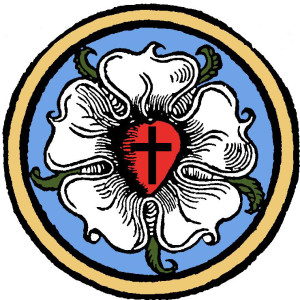
The Scripture readings this week are heavy with the Law, warning of the coming judgment of God upon individuals and Israel and eventually upon the whole earth because of sin and rebellion against God by so many. There is still hope in the Lord, through Christ, for those brought to be faithful servants, trusting the Lord.
The Psalm is Psalm 90:1-12, a prayer of Moses, recognizing that God was to be the “dwelling place” of people; yet because of “our sins and iniquities,” we are under the anger and wrath of God, with much “toil and trouble” and a limited life. Moses prays that we may be “taught” to “number our days, that we may get a heart of wisdom,” and right after our reading, prays that God would “satisfy us with His steadfast love” and “make us glad,” even in times of “affliction” (v.14-15).
The Old Testament lesson is from “the Word of the Lord” given to the prophet Zephaniah in Zephaniah 1:7-16. The people of Judah and Jerusalem are to be silent because a day of wrath is coming to people who are “complacent,” following the practices of false gods and saying, “The Lord will not do good, nor will He do ill.” Therefore, “a day of clouds and thick darkness” will come upon them - and eventually, “the great day of the Lord’s “ruin and devastation” and “distress on mankind” because they have sinned against the Lord.” (Hope in the Lord does come, but not until about the middle of Zephaniah 3:9ff.)
The Gospel lesson is another of the parables of Jesus, told during Holy Week, just a few days before His suffering and death. Jesus tells of a Master entrusting His money to His servants to take care of while He is away, giving to each according to his ability. When He returned, a servant given five talents of money had earned five more, and a servant with two talents had earned two more. Each is called a “faithful servant” and “enters into the joy of his Master.” One servant, however, sees his master as a hard man and is afraid and hides his talent of money and earns nothing. Only he is in trouble, being “wicked and slothful.” That “worthless” servant, who does not trust his Master, is cast into “outer darkness, where there will be weeping and gnashing of teeth” - one of the Biblical descriptions of hell.
The Epistle lesson is from 1 Thessalonians 5:1-11. Paul also speaks of “the day of the Lord” as coming “like a thief in the night,” at an unexpected time, bringing “sudden destruction” upon those unprepared. God’s people are in the “light of Christ,” though, and are not “destined for wrath,” but will “obtain salvation through our Lord Jesus Christ, who died for us.” We will live with Him always,” even if we die, as we stay awake, spiritually, with the Lord’s gifts of “faith and love and hope.” We can “encourage and build up one another” with this amazing hope in Christ.
More Episodes
 2023-02-21
2023-02-21
 9
9
 2023-02-21
2023-02-21
 14
14
 2023-02-15
2023-02-15
 12
12
 2023-02-15
2023-02-15
 15
15
 2023-02-07
2023-02-07
 9
9
 2023-02-07
2023-02-07
 17
17
 2023-01-29
2023-01-29
 8
8
 2023-01-29
2023-01-29
 17
17
 2023-01-25
2023-01-25
 6
6
 2023-01-25
2023-01-25
 12
12
 2023-01-23
2023-01-23
 10
10
 2023-01-23
2023-01-23
 8
8
 2023-01-11
2023-01-11
 13
13
 2023-01-11
2023-01-11
 12
12
Create your
podcast in
minutes
- Full-featured podcast site
- Unlimited storage and bandwidth
- Comprehensive podcast stats
- Distribute to Apple Podcasts, Spotify, and more
- Make money with your podcast
It is Free
- Privacy Policy
- Cookie Policy
- Terms of Use
- Consent Preferences
- Copyright © 2015-2024 Podbean.com






